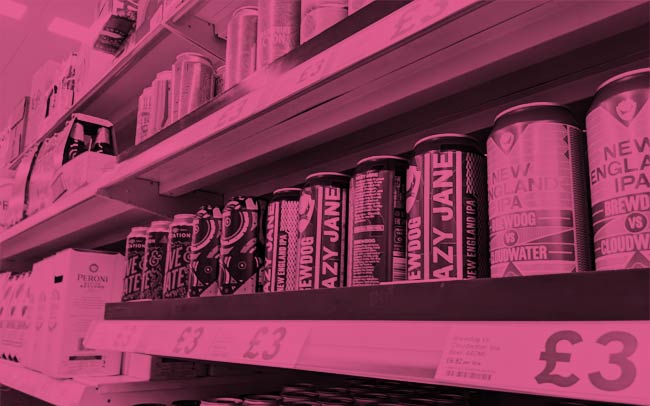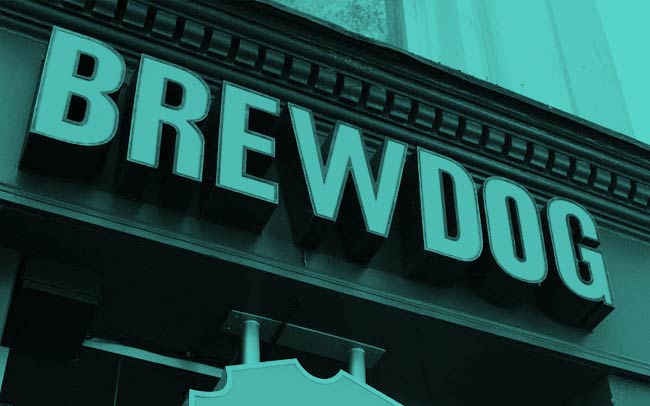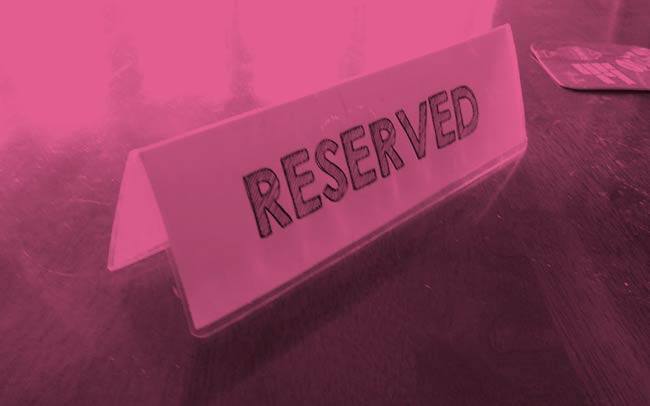Visit the Boak and Bailey's Beer Blog site
Here’s all the beer and pub news, commentary and history that caught our attention in the past week, from beer gardens to beer in Tesco.
This week has been defined by the reopening of pubs in England – or at least of pub gardens. Monday was apparently a good day for the trade, at least in terms of takings. Some have reported seeing crowded venues with little evidence of social distancing which, after a year on high alert, might understandably cause some anxiety amongst people who’ve been living on high alert for more than a year. With our own eyes, we’ve seen outside drinking areas full and lively but looking very much under control. There’s no reason to believe that socialising outdoors is particularly risky – especially when you consider how many people of all age groups now have antibodies compared to three months ago, and the current low community prevalence of cases. We’re certainly enjoying all the lovely photos of pints on social media – tempered with sympathy for those living in places where this feels a way off yet.
 Manchester brewery Cloudwater made two announcements this week. The first was that they would be supplying a range of standard beers contract-brewed by BrewDog through Tesco supermarkets. This feels like something of a U-turn on previous commitment to independent retailers and cold-chain supply but, more importantly, it signals that Cloudwater is taking an important step on the Beavertown path. It’s not inevitable they’ll reach the same destination, of course, but it’s a series of compromises that will get you there.
Manchester brewery Cloudwater made two announcements this week. The first was that they would be supplying a range of standard beers contract-brewed by BrewDog through Tesco supermarkets. This feels like something of a U-turn on previous commitment to independent retailers and cold-chain supply but, more importantly, it signals that Cloudwater is taking an important step on the Beavertown path. It’s not inevitable they’ll reach the same destination, of course, but it’s a series of compromises that will get you there.
Yvan Seth, owner of beer distributor Jolly Good Beer, speaks calmly and eloquently on behalf of the indie trade – “the gross margin on core Cloudwater sales covers the wages of perhaps as much as 2 whole JGB employees.. [and we] are now going to lose sales volume to Tesco”.
The second announcement concerned a Tesco-exclusive four-pack of beers produced in collaboration with minority-owned brewing companies and, again, contract-brewed at BrewDog. The owners of those businesses were understandably excited at this opportunity to get their brand names and ideas in front of mainstream consumers. Lily Waite of The Queer Brewing Project explains:
Why does this matter? Craft beer as a sector has prioritised diversity and inclusion as a topic of discussion for about as long as I’ve been working in beer, though efforts beyond discussion aren’t as common as the industry would like to believe. Craft beer is still overwhelmingly white, male, able-bodied, straight, and cisgender. It is inclusive perhaps in spirit, though not so much in practice, and its audience and consumer base reflects this… By stepping outside of the common routes to market with this collaboration pack, we’re putting beer brewed by people underrepresented in craft beer in front of a different audience—an audience that may feel excluded by craft beer’s homogeneity, or by its insularity. Not only are we putting great beer in front of different communities, we’re also providing visibility and representation on a bigger scale than we’ve ever worked at before.
Stacey Ayeh of Rock Leopard, one of the few black-owned breweries in the UK, has little time for grumbling about independence or Cloudwater’s business practices when, as he sees it, only Cloudwater has actually done anything other than talk about diversity:
 Speaking of BrewDog, for Vinepair, Dave Infante has summarised various issues bubbling up around the Scottish brewery with regard to its track record on LGBTQ+ issues:
Speaking of BrewDog, for Vinepair, Dave Infante has summarised various issues bubbling up around the Scottish brewery with regard to its track record on LGBTQ+ issues:
“I really feel like BrewDog is intentionally deceptive to its employees about this,” Jordan Dalton, another of the Indy ex-employees in question, told me. “We had to go through an orientation that was a lot of hyping up of BrewDog and also James Watt and the other founder specifically … so for me to kind of do some digging and find something so shocking and disgusting to me, it definitely made me want to pursue this further.”
“If I knew about those things, I would have never gone to this company, being a trans woman myself,” added Kyrrha Myers, another fired worker. “I’m sure BrewDog and James Watt didn’t want us to know about that. It’s not a good look for BrewDog, and now it comes back to … I see why people have issues with BrewDog.”
 Now, back to the reopening of pubs: for the Guardian James Greig mourns the loss of spontaneity as booking becomes the norm for everything from a morning swim to an evening cocktail:
Now, back to the reopening of pubs: for the Guardian James Greig mourns the loss of spontaneity as booking becomes the norm for everything from a morning swim to an evening cocktail:
I don’t believe the advance bookers really enjoy going to the pub at all. It’s just an activity, a day out, an opportunity to socialise with their loved ones after several months of enforced isolation. For me, on the other hand, it is a way of life. They merely adopted the pub; I was born in it, moulded by it (note: I was not born in a pub). I have nothing against these people, this demographic I’ve just invented, but the point is they are already life’s winners. They already have so much. Can’t they leave the rest of us to our grotty, spontaneous little nights out?
 Now, yet another heavy question: “What if the craft beer story is wrong?” asks Jeff Alworth at Beervana:
Now, yet another heavy question: “What if the craft beer story is wrong?” asks Jeff Alworth at Beervana:
While a myth can give events a structure, it also edits out discordant information. In choosing a myth, we reject other factual arrangements. By selecting a framework of craft beer that echoes the frontier myth, we miss other stories right in front of us. After hearing the story of how Jack McAuliffe “started the revolution” at New Albion dozens of times, I was so struck in hearing about his partner—a woman. In so many ways talking only about Jack follows the contours of that old myth: a man with a singular vision, irascible, irrepressible—maybe even a little unlikable—defies all convention to build the first brewery and change beer forever. Except that the story is really one of two founders, Jack and Suzy Denison. Suzy’s story is not Jack’s. She was the junior partner, yet she was very much a partner. And remarkably, it illustrates how early women were a part of craft brewing. Her part in that story may complicate the narrative, but she makes in far more interesting.
 We’re not sure how it happened but our RSS reader decided we didn’t want to read Jonny Garrett’s story for Good Beer Hunting on the origins and history of black IPA. We did but only spotted it via Twitter too late for inclusion in last week’s round-up. So, a bit late, here it is:
We’re not sure how it happened but our RSS reader decided we didn’t want to read Jonny Garrett’s story for Good Beer Hunting on the origins and history of black IPA. We did but only spotted it via Twitter too late for inclusion in last week’s round-up. So, a bit late, here it is:
Black IPA was arguably the first viral craze of the craft beer revolution. While beers like the American Pale Ale and IPA gained traction over decades, the Black IPA went from regional curiosity to global phenomenon in a relative blip. There were more breweries around the world than there had been for a century, and for a time, the style spread unabated—then fizzled out nearly as quickly… That’s because, despite being common in brewery core ranges from roughly 2008 to 2014, the style had a persistent image problem. How can an India Pale Ale even be black, detractors wanted to know? Don’t roasted malts clash with fruity hops, or add excessive bitterness? And if a heavily hopped Dark Ale is a Black IPA, then what’s a Cascadian Dark Ale—and where does that leave Export India Porters?
Finally, from Twitter, what actually amounts to a bonus article, from satirical literary magazine (is that what you’d call it?) The Fence, on the mediocre pubs of London:
We asked, you answered.
As London reopens, we present a non-exhaustive list of the capital’s most mediocre drinkeries — this is your Europa League of pubs.
pic.twitter.com/ZviIzWyJLI
— The Fence Magazine (@The_Fence_Mag)
April 13, 2021
For more good reading check out Alan McLeod’s round-up from Thursday.
News, nuggets and longreads 17 April 2021: Beer gardens, Cloudwater, black IPA originally posted at Boak & Bailey's Beer Blog
More...
Manchester brewery Cloudwater made two announcements this week. The first was that they would be supplying a range of standard beers contract-brewed by BrewDog through Tesco supermarkets. This feels like something of a U-turn on previous commitment to independent retailers and cold-chain supply but, more importantly, it signals that Cloudwater is taking an important step on the Beavertown path. It’s not inevitable they’ll reach the same destination, of course, but it’s a series of compromises that will get you there.
pic.twitter.com/rlkEEwR9g7
Speaking of BrewDog, for Vinepair, Dave Infante has summarised various issues bubbling up around the Scottish brewery with regard to its track record on LGBTQ+ issues:
Now, back to the reopening of pubs: for the Guardian James Greig mourns the loss of spontaneity as booking becomes the norm for everything from a morning swim to an evening cocktail:
Now, yet another heavy question: “What if the craft beer story is wrong?” asks Jeff Alworth at Beervana:
We’re not sure how it happened but our RSS reader decided we didn’t want to read Jonny Garrett’s story for Good Beer Hunting on the origins and history of black IPA. We did but only spotted it via Twitter too late for inclusion in last week’s round-up. So, a bit late, here it is:




 Reply With Quote
Reply With Quote